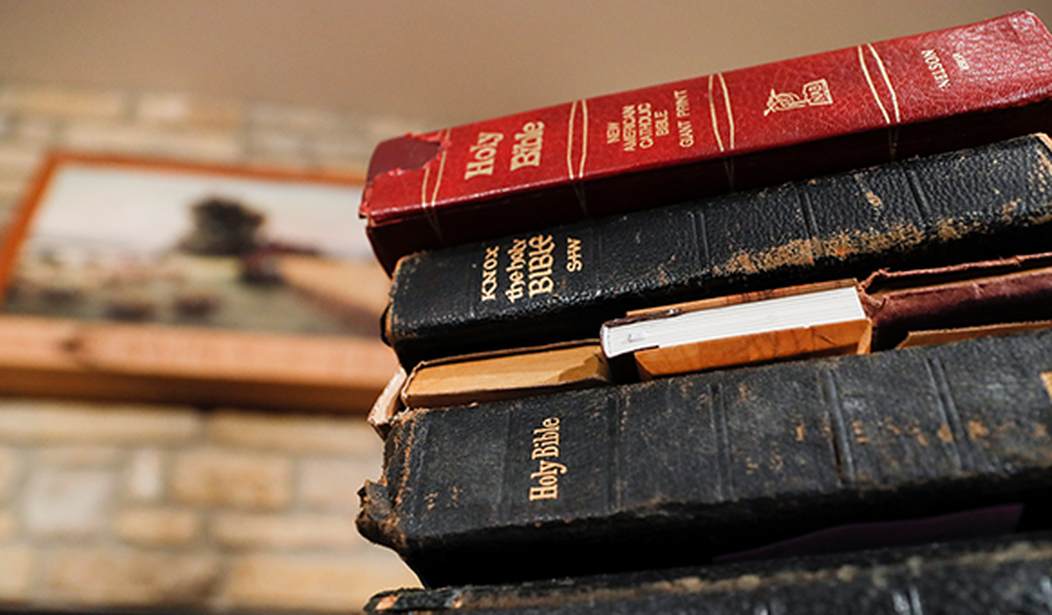Author’s Note: Interested readers can find all previous volumes of this series here.
Thanks for joining us! Today we study a Jewish man named Stephen. He is known to be the first Christian martyr for his belief in the divinity of Jesus Christ. We initially read about Stephen in the New Testament Book of Acts 6:1-7.
To paraphrase those verses: Since the number of believers in Jesus “was increasing,” His twelve Disciples needed more disciples to help feed the poor so they could “give our attention to prayer and ministry of the word.” (A wise strategic management decision based on promising long-term growth instead of running day-to-day operations.)
At that time, around 31-33 A.D., Christianity was a nascent movement called “the Way” first mentioned in Acts 9:2. The “Way” reflects Jesus saying, “I am the Way, the Truth, and the Life. No one comes to the Father except through me” (John 14:6).
To accommodate the growing ministry, the Twelve choose seven men, including Stephen, who was “full of the spirit and wisdom.” Stephen is described as “a man full of God’s grace and power, did great wonders and miraculous signs among the [Jewish] people” (Acts 6:8).
Unfortunately for Stephen, that God-given “power” led to conflict with Jewish leaders:
“But they could not stand up against the wisdom the Spirit gave him as he spoke. Then they secretly persuaded some men to say, ‘We have heard Stephen speak blasphemous words against Moses and against God.’ So they stirred up the people and the elders and the teachers of the law. They seized Stephen and brought him before the Sanhedrin” (Acts 6:10-12). Note that the Sanhedrin was ancient Israel’s “supreme court” of Jewish elders.
Recommended
Included in the testimony against Stephen was this prophetic charge:
“For we have heard him say that this Jesus of Nazareth will destroy this place and change the customs Moses handed down to us” (Acts 6:14). Remember, about four decades later in 70 A.D., the Romans (not Jesus) destroyed Jerusalem along with the Temple, and also, “the Way” sprung from Judaism. (That is why Messianic Jews like me believe that Jesus “completes” Judaism.)
Based on the following verse, during Stephen’s trial the Sanhedrin saw something extraordinary in him: “All who were sitting in the Sanhedrin looked intently at Stephen, and they saw that his face was like the face of an angel” (Acts 6:15).
Perhaps because of his angelic face, “Then the high priest asked Stephen, ‘Are these charges true? ’ ” (Acts 7:1). Stephen seizes the question as an opportunity to fight for his life, espousing “the truth.” He launches into a lengthy, uninterrupted, passionate history of the Jewish people and their relationship with God. For extra credit, you can read Stephen’s testimony in Acts 7:1-53.
Near the end, Stephen reminds the Sanhedrin that God is not confined to a building. He builds his own temple saying, “However, the Most High does not live in houses made by human hands.” (Acts 7:48). Stephen lays the Biblical basis for why the Holy Spirit lives outside of a temple. Then he quotes Isaiah: “ ‘Heaven is my throne, and the earth is my footstool” (Acts 7: 49-50).
However, at the end of his long history lesson answer, Stephen lets it rip, yelling at the Sanhedrin for what they did to Jesus:
“You stiff-necked people! Your hearts and ears are still uncircumcised. You are just like your ancestors: You always resist the Holy Spirit! Was there ever a prophet your ancestors did not persecute? They even killed those who predicted the coming of the Righteous One. And now you have betrayed and murdered him— you who have received the law that was given through angels but have not obeyed it” (Acts 7:51-53).
Naturally, the Sanhedrin “were furious and gnashed their teeth at him.” Next, we read how Jesus responded to one of His believers at their time of need:
“But Stephen, full of the Holy Spirit, looked up to heaven and saw the glory of God, and Jesus standing at the right hand of God. ‘Look,’ he said, ‘I see heaven open and the Son of Man standing at the right hand of God’” (Acts 7: 54-56). (See Vol. 53 explaining why Jesus called Himself the “Son of Man.”)
When the Sanhedrin heard Stephen proclaim that he was seeing the “Son of Man,” they “dragged him out of the city and began to stone him” (Acts 7: 57-58).
The passage that follows reads, “While they were stoning him, Stephen prayed, ‘Lord Jesus, receive my spirit.’ Then he fell on his knees and cried out, ‘Lord, do not hold this sin against them.’ When he had said this, he fell asleep” [died] (Acts 7: 59-60).
Notice how Stephen’s last words are similar to the last words of Jesus in Luke 23:34.
Why is the stoning of Stephen a seminal event in the early history of Christianity? Here are four reasons, but all are of equal importance.
First, there are two verses in Acts (7:58 and 8:1) that mention a man named Saul who was present and authorized the stoning of Stephen. Saul, a member of the Sanhedrin, was a religious leader who oversaw the persecution of Jews who believed in Jesus — until he famously had his own encounter in Acts 9: 1-31. Saul’s name was changed to Paul and eventually he wrote half of the New Testament chapters while becoming the world’s most effective evangelist for Christianity.
Second, after the stoning of Stephen, the followers of Jesus feared for their lives and left Jerusalem. However, most of the apostles stayed. But Christianity spread through that persecution (Acts 8:1-4) as it has throughout history and to this day.
Third, Stephen, as the first Christian martyr, had no fear of death while challenging authority. He became an inspiration and role model for missionaries worldwide who have suffered or died in His name. Stephen’s story reminds believers that when you stand up for Jesus, He will be with you on earth and in Heaven.
Fourth, Stephen showed the Jewish leaders that Jesus was worth dying for because He was the “Son of Man standing at the right hand of God” whom the prophets wrote about in the Hebrew Bible.
And to that, I say, “Amen!”
Myra Kahn Adams is a media producer and conservative political and religious writer with numerous national credits. She is also Executive Director of www.SignFromGod.org, a ministry dedicated to educating people about the Shroud of Turin. Contact: MyraAdams01@gmail.com or Twitter @MyraKAdams.

























Join the conversation as a VIP Member